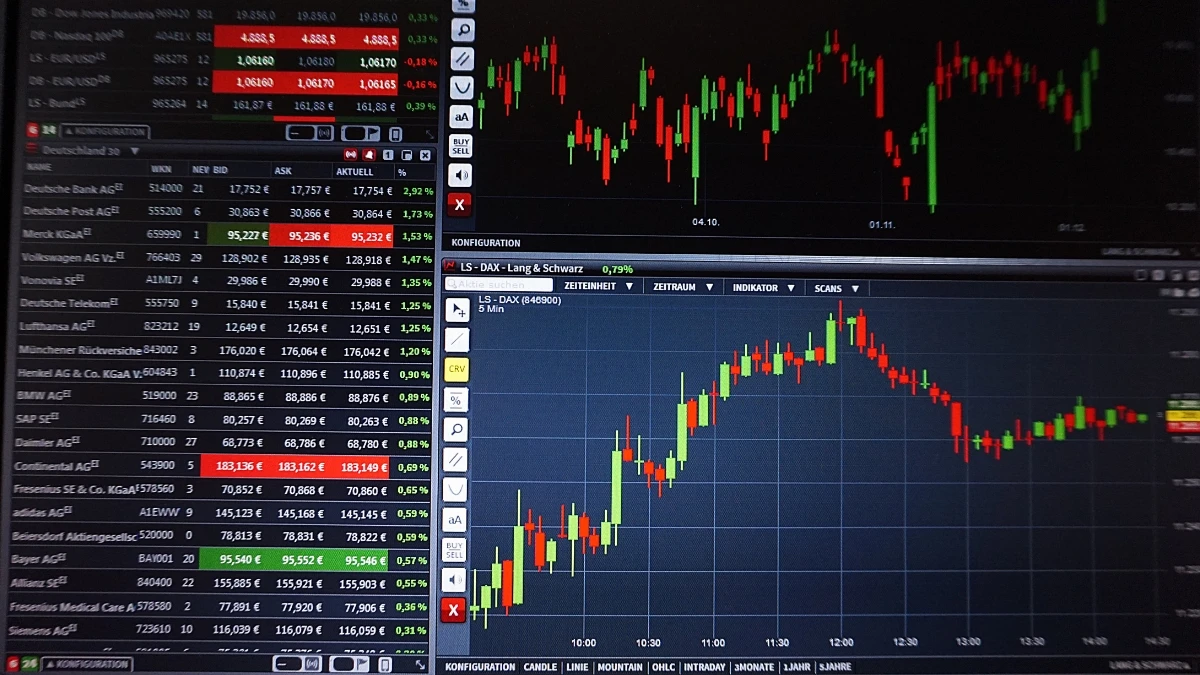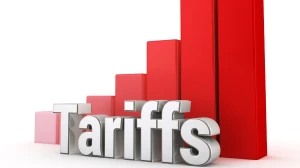World shares retreated Friday following choppy trading on Wall Street that saw more losses and as investors assess President Donald Trump's order imposing new tariffs on 68 countries and the European Union starting in seven days.
Trump's order, which pushed back the tariff deadline earlier set on August 1, has injected a new dose of uncertainty in an already uncertain process.
In early European trading, Germany's Dax fell 1.5 per cent to 23,697.31. Britain's FTSE 100 dropped 0.7 per cent to 9,068.97. In Paris, the CAC 40 shed 1.6 per cent to 7,647.56.
The future for S&P 500 was down 0.8 per cent and that for the Dow Jones Industrial Average was also 0.8 per cent lower.
Japan's Nikkei 225 slid 0.7 per cent to 40,799.60 while South Korea's Kospi tumbled 3.9 per cent to 3,119.41.
Hong Kong's Hang Seng index shed 1.1 per cent to 24,507.81, while the Shanghai Composite slipped 0.4 per cent to 3,559.95.
Australia's S&P ASX 200 shed 0.9 per cent to 8,662, India's BSE Sensex lost 0.4 per cent to 80,837.19 and Taiwan's TAIEX slid 0.5 per cent to 23,434.38.
“Trump's new tariff directive, signed behind closed doors just ahead of the August 1 deadline, slaps a new floor under global trade costs: a 10 per cent minimum rate for nearly all partners, with surcharges of 15 per cent or higher for surplus nations,” with Canada drawing particular ire, Stephen Innes of SPI Asset Management said in a commentary.
“This wasn't just an update — it was a structural rewrite. The average US tariff jumps from 13.3 per cent to 15.2 per cent, a seismic shift from the 2.3 per cent average before Trump retook office. This reshapes the cost calculus for everything from semiconductors to copper pipes,” he added.
Benjamin Picton, senior market strategist at Rabo Bank, said in a commentary about the US tariffs: "The USA is cherry-picking high value-add industry for its own economy while forcing trading partners to grant preferential market access for its exports and supply it with cheap imports. Make no mistake, this is imperial trade.” On Wall Street on Thursday, stocks capped the trading day with more losses after an early big tech rally faded and a health care sector pullback led the market lower.
The S&P 500 fell 0.4 per cent, its third straight decline. The benchmark index, which is just below the record high it set Monday, notched a 2.2 per cent gain for the month of July and is up 7.8 per cent so far this year.
The Dow Jones Industrial Average lost 0.7 per cent and the Nasdaq composite closed less than 0.1 per cent lower.
Roughly 70 per cent of stocks in the S&P 500 lost ground, with health care companies accounting for the biggest drag on the market.
Health care stocks sank after the White House released letters asking big pharmaceutical companies to cut prices and make other changes in the next 60 days. Eli Lilly & Co. fell 2.6 per cent, UnitedHealth Group slid 6.2 per cent and Bristol-Myers Squibb dropped 5.8 per cent.
Gains by some big technology stocks with hefty values helped temper the impact of the broader market's decline.
Meta Platforms surged 11.3 per cent after the parent company of Facebook and Instagram crushed Wall Street's sales and profit targets even as the company continues to pour billions of dollars into artificial intelligence.
Microsoft climbed 3.9 per cent after posting better results than analysts expected. The software pioneer also gave investors an encouraging update on its Azure cloud computing platform, which is a centrepiece of the company's artificial intelligence efforts.
Big Tech companies have regularly been the driving force behind much of the market's gains over enthusiasm for the future of artificial intelligence.
In other dealings Friday, US benchmark crude oil added 15 cents to USD 69.41 per barrel, while Brent crude, the international standard, also rose 15 cents to USD 71.85 per barrel.
The US dollar fell to 150.55 Japanese yen from 150.67 yen. The euro rose to USD 1.1419 from USD 1.1421.
This report includes content sourced from Press Trust of India (PTI), edited for clarity and context.






